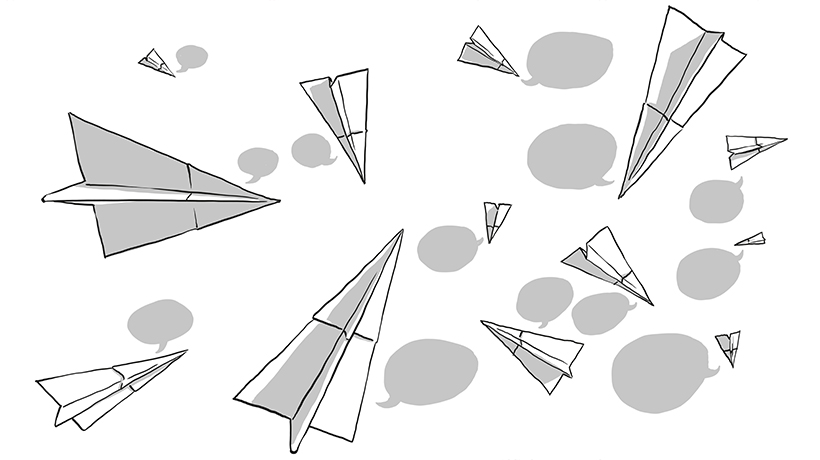I recently graduated from the Executive Master of Public Administration at the Hertie School of Governance. Almost immediately after graduation, I was offered a consulting contract to manage a project with the mandate to establish a business process centre of excellence at a large government entity.
I already worked in business consulting before starting the Executive Master of Public Administration (EMPA), and as an Industrial Engineer, process improvement projects fit nicely within my “spectrum of expertise”. What can or should I do differently after having completed the EMPA? In the paragraphs below, I reflect on how my thinking developed during my career, and how the Hertie experience influenced it.
Industrial engineers live to make processes in the manufacturing and service sectors better. We are taught to work with facts; how to conduct time and motion studies and how to measure process variability. We were taught that you can build a model that can help you optimize decision making so that you choose the optimal solution for the problems you face. Graduating as an Industrial Engineer, you feel like you are ready to unleash your Quality and Operations Research tools (among others) on organizations out there.
But then came my first job at a logistics company (which I will return to later). Here my skills, which were the basis for my recruitment, hit a wall when trying to convince people to invest in ideas such as “Lean” processes. Frustrated, I eventually quit the fast growing profitable logistics company. At the time I thought that the management was just not interested in delivering high quality service as efficiently as possible. I left for a well-known consulting company.
Consulting is a wonderful world. You learn how to envision a bright future and put it down in strategy documents, you learn how to develop strategy execution plans and how to drive and manage change. After 4 years in consulting, I was offered a job at the logistics company again. Now a mid-career professional, I thought I’d test my skill-set and see what difference my years in consulting made.
The organization had no formal strategic plan, projects were delivered on an ad-hoc basis with no clear standards. Management decisions were made in an opportunistic manner and followed no clear process. On an operational level there were numerous service issues with delays in responding to customer requests as well as late deliveries. A lot of low-hanging-fruit type of opportunities just waiting to be seized. After tremendous effort I managed to create some urgency with management and they agreed to develop a strategic plan and become more disciplined in how they manage projects. When we got to the details of how this would be implemented I witnessed what I considered good management practice being torn apart as each manager adjusted processes according to the “realities” of their jobs.
What I found most disturbing, even insulting, however was that company revenues and sales were growing despite of what I perceived as poor management. There should have been doom and gloom according to management theory. What was the use of all of my knowledge and skills?
Enter Hertie, with a new perspective of understanding organizations. In the world of political science and public administration there are ways of trying to understand organizations that are more nuanced and realistic than what is usually found in business schools and management theory. You learn that behaviour can be explained by power relationships, the balance of which is determined by the problems and uncertainties that different employees face and their dependencies on each other in terms of addressing them. You also learn that managers make decisions based on the limited information that they have and there is not always a clear link between their actions and results.
Let’s take the leadership of an organization as an example; in order to sustain their organization and meeting the requirements of external stakeholders (profit in the private sector or political support in the public sector) they face the challenge of translating that into collective action within the organization. Tools such as strategic planning and project management offices help them achieve their objectives as they distil learning of how organizations can be successful. These tools also help facilitate the creation of a power structure within the organization that helps the CEO steer the organization and find accommodation with its stakeholders. The logistics company that I worked for however did not have any big shot MBAs and accordingly no fancy tools were deployed in the management of the organization. Managers were comfortable making decisions without going through a structured process. This did not mean that it wasn’t successful and highlights how you can develop your own unique solutions in terms of managing an organization.
Now, let’s come back to the question of what I am doing differently in my current work as a consultant. My thinking has changed in three ways. First, building relationships with clients has taken a whole new meaning. As a consultant you go into an organization and disrupt existing power relationships and you need to understand where you stand to be effective (what problems and uncertainties can you address?). Second, I am much more aware that my design of solutions needs to take into consideration the social relationships within an organization. Management theory can provide a great reference into developing solutions, but each solution has to take into consideration the relationships within the specific organization. Last but not least, I am now much more comfortable understanding how decisions are made within organizations as I became less worried about the rationality of decision making.
How did the Executive Master of Public Administration programme impact your career? If you would like to write a similar article or have any questions, please contact Sari and the Ideas2Action Team on ideas2action@thegovernancepost.org
